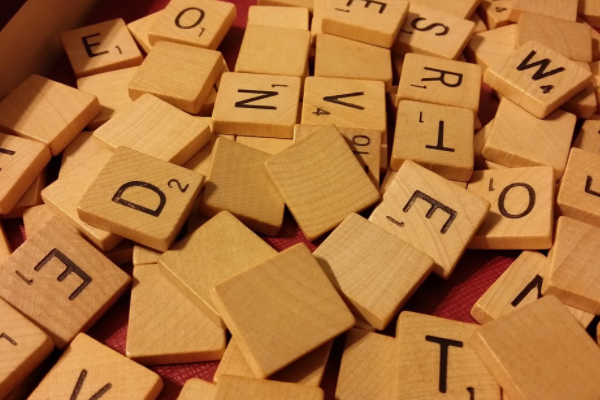Ever dabbled in the realm of word games? If you have, you’ll know there’s a unique thrill in unscrambling letters. Take XATPES for instance. At first glance, it might seem like a jumble of random letters. But dive deeper and a world of possibilities unfolds.
Word games like unscrambling challenge our brains. They push us to see beyond the obvious. And that’s where the art comes in. Like a painter visualizing a masterpiece on a blank canvas, a gamer visualizes words in a mix of letters. It’s about intuition. It’s about creativity. And it’s about that sudden “aha” moment when the word reveals itself.
Now, flip the coin and you’ll find the science. Our brains are wired to recognize patterns. When we unscramble, we engage specific parts of our brain. We activate our problem-solving skills. We train our minds to think laterally. And the more we do it, the better we get.
So, the next time you come across a scrambled word, embrace it. Dive into the challenge. Enjoy the process. Remember XATPES? It’s not just a mix of letters. It’s an opportunity. An opportunity to engage with the beautiful dance of art and science that is unscrambling. And as you unravel each letter, you’re not just playing a game. You’re part of a community that celebrates the fusion of creativity and logic in the gaming lifestyle.
Historical Tidbits on Word Games

Word games have ancient roots. Think of hieroglyphics in Egypt. Or the carved symbols of ancient China. People loved playing with words long before modern languages took shape.
In ancient Greece, poets crafted anagrams. They believed rearranging letters unveiled hidden messages. Transition to the Middle Ages. Nobles and scholars delighted in word puzzles. They viewed them as a test of wit.
Then we saw the Renaissance. Literary enthusiasts started creating crossword-like puzzles. They shared them in small circles. Many believed they sharpened the mind.
Fast forward to the 20th century. Board games like Scrabble gained popularity. Families gathered around tables. Friends challenged each other. Everyone wanted to showcase their vocabulary prowess.
Now, consider the digital age. Online platforms offer a plethora of word games. Here, players from all over the world connect. They compete. They collaborate. And sometimes, they encounter words like XATPES. Such words pique curiosity. They beckon players to dive deeper into the art of unscrambling.
Tools of the Trade
Word games have evolved. Ancient civilizations used stones and sticks. Today, we have modern tools. These tools elevate our gaming experience.
Begin with traditional board games. Scrabble stands out. Players gather tiles. They create words. They score points. Everyone loves the competition.
Then think of books. Word puzzle books flood the market. Solvers flip pages. They fill grids. They seek solutions. Each puzzle offers a unique challenge.
Now, step into the digital age. Apps dominate the scene. Games like Words with Friends attract millions. Players tap screens. They match wits with global opponents. Victory often hinges on strategy.
Websites offer another avenue. They provide word solvers. Ever struggled with XATPES? Plug it into a solver. Watch as words emerge. These sites aid and entertain.
Lastly, there’s technology. Voice-activated tools help players. Say a word. Get its meaning instantly. These tools expand knowledge. They make learning interactive.
Diving Deeper into XATPES

At first glance, it seems like a jumble. Just a random set of letters. But dig a little deeper. A world of possibilities awaits.
Start with unscrambling. This exercise pushes the brain. It prompts us to see patterns. Potential words begin to emerge. Some might see “taxes”. Others might think of “paste”. The letters offer various options. Each player might see something different.
Then consider its usage. In a word game, XATPES can be a goldmine. Players aim to maximize points. Using all the letters can lead to a high score. Strategy plays a role here. Where to place the word on the board? Which letter to start with? Choices matter.
Now, reflect on the fun. Unscrambling is more than just points. It’s about the thrill. The excitement of discovery. The satisfaction of solving. XATPES embodies this.
In the end, these six letters teach us a lot. They represent the challenge of word games. They highlight the joy of discovery. And they remind us that sometimes, it’s the journey that counts. Not just the final word.
Unscrambling Techniques for Newbies
- Begin with Short Words: Start small. Look for two or three-letter words first. They can guide you to bigger ones.
- Use Common Prefixes and Suffixes: Identify familiar beginnings or endings. Words often have “un-“, “pre-“, “ed”, or “ing”.
- Group Vowels and Consonants: Separate the letters. This way, you can easily see potential combinations.
- Look for Common Word Pairings: Some letters often appear together, like “th”, “st”, or “qu”.
- Rearrange Physically: Write letters on paper. Move them around. Sometimes, seeing combinations visually helps.
- Say the Letters Aloud: Pronouncing can trigger word recognition.
- Practice with Word Apps: Use apps that focus on unscrambling. They can sharpen your skills.
- Challenge Yourself: Set a timer. Try to unscramble within a limit. This boosts quick thinking.
- Stay Updated on Vocabulary: The more words you know, the better you’ll be.
- Stay Persistent: Don’t get disheartened. With time and practice, you’ll get better.
Remember, unscrambling is a skill. Like all skills, it improves with practice. Keep at it!
The Psychology Behind Letter Arrangement

The human brain loves order. It craves patterns. That’s where the psychology of letter arrangement steps in.
Imagine a word like XATPES. It looks random at first. But our brains don’t see it that way. They start to search for familiarity. For patterns that make sense.
This urge ties back to evolution. Early humans needed pattern recognition. It helped them spot predators. It aided in finding food. Today, we use the same skill. But now, it’s for deciphering words.
When we see jumbled letters, something interesting happens. Our brain activates its problem-solving centers. It gets to work. It seeks meaning. It yearns for order.
But why? It’s about satisfaction. Solving puzzles releases dopamine. This feel-good chemical rewards our brain. It motivates us. It’s why unscrambling letters feels so gratifying.
So, the next time you tackle XATPES or a similar jumble, remember. It’s not just a game. It’s a testament to human evolution. It showcases our innate love for patterns. And it’s a journey into the depths of our psychology.
XATPES in Pop Culture
Pop culture thrives on trends. It picks up on buzzwords. Sometimes, words like these grab the spotlight.
Consider the rise of word games. Shows like “Wheel of Fortune” took center stage. They made unscrambling mainstream. Viewers tuned in. They tried to solve puzzles from their couches.
Transition to movies. Spellbinding scripts often use word plays. They create suspense. They inject humor. They make audiences think. Jumbled words fit right in. They add an element of mystery.
Music doesn’t lag behind. Songwriters play with words. They twist them. They turn them. They create catchy lyrics. Some even center on the charm of unscrambling.
Books offer another avenue. Mystery novels often hinge on codes. On cryptic messages. Unscrambling becomes a crucial plot point.
Online platforms amplify the trend. Memes go viral. Social media challenges emerge. Users engage. They share. They discuss. Words, jumbled or not, become part of the discourse.
They represent a puzzle. A challenge. And as people dive into unscrambling, it becomes clear. Such words have carved a niche for themselves in the vast landscape of pop culture.
The Future of Unscrambling

Unscrambling has a bright future. As we move forward, technology shapes its trajectory.
Imagine augmented reality games. Players could unscramble words in real-time. They could interact with letters in their environment. It would take gaming to another level.
Virtual reality offers more avenues. Players might dive into immersive word worlds. They could physically move letters. They could form words in a 3D space. It’s exciting to think about.
AI will play a role too. Imagine challenging a bot to unscramble XATPES. These bots could adapt. They could offer increasing levels of difficulty. Players could test their limits.
Education will harness unscrambling. Teachers could use advanced tools. They could make learning interactive. Students could engage more. They could learn while playing.
Online platforms will evolve. They’ll offer global challenges. Players from different countries could compete. They could share strategies. They could learn from each other.
Unscrambling stands on the brink of innovation. Technology will push its boundaries. It will make it more engaging. More interactive. And as we look to the future, one thing is clear. The art of unscrambling will only grow in popularity.
Frequently Asked Questions
What is unscrambling in the context of word games?
Unscrambling involves rearranging a set of jumbled letters to form meaningful words. It’s a common challenge in various word-based games and puzzles.
How can unscrambling benefit the brain?
Unscrambling stimulates the brain, enhances problem-solving skills, and improves vocabulary. It also aids in cognitive function and pattern recognition.
Are there tools to help with unscrambling words?
Yes, there are numerous online word solvers and apps designed to help players unscramble letters and find potential words.
I came across the word “XATPES” in a game. Can it be unscrambled?
It can be unscrambled into various words. One example is “TAXES”. Using an unscrambling tool can show you all possible combinations.
How do I get better at unscrambling?
Practice is key. Engaging in word games, reading regularly, and expanding your vocabulary can all help improve unscrambling skills.
Decoding the Magic
In the world of word games, unscrambling stands out. It challenges our brains. It invites us to see patterns. And it rewards us with the joy of discovery. From ancient puzzles to modern apps, the journey is evident. We’ve evolved. Yet our love for decoding words remains. Take XATPES as an example. It shows that with every jumble, there’s a solution waiting. Dive into unscrambling. Embrace its magic. And let words reveal their hidden stories.
People Also Searched For
- Tag After School APK
- Ultra Panda 777 Download
- Play777Games
- Veetėjas
- Bertėjas
- Iganiny
- Käntäjää
- Iversær
- Trails Carolina Horror Stories
- Käämyäjä
- Bench Craft Company Lawsuit
- Taiwan Self-Driving Gharry
- Hüriyer
- Home Security ServLeader
- Milḫu
- Unblocked Games Premium
- HQpotner
- Pépico
- Timbiguer
- Fastdl
- Kääntäh
- Inter Milan VS FC Porto Timeline
- Basketball Stars Unblocked
- Käämtäjä
- Instanavigation
- Blooket Join
- Ovestæ
- Käöntöjä
- Kecveto
- Home Security Companies Near Me Servleader
- Craigslist New Orleans
- Pixel 3xl Overwatch Image
- personal injury attorney memphis beyourvoice.com
- Vaçpr
- SSR Movies
- Mindblown Madknows
